Conflict Resolution and Delegation Strategies for New RNs in NSB305
VerifiedAdded on 2023/06/07
|5
|1160
|231
Report
AI Summary
This report addresses the critical issue of delegation conflicts within the nursing profession, specifically focusing on the challenges faced by newly registered nurses (RNs). The report begins by defining delegation and its importance, especially in light of staff shortages and the need to provide quality patient care. It then outlines the negative impacts of unresolved delegation conflicts, such as RN burnout, compromised patient care, and high turnover rates. The core of the report centers on practical strategies for resolving these conflicts, including effective communication, practicing delegation to build confidence, and fostering trust and positive relationships within the nursing team. By applying these strategies, RNs can improve their leadership skills, promote team cohesion, and ultimately enhance patient outcomes. The report concludes by emphasizing the significance of delegation in the nursing profession and the benefits of mastering this skill to avoid overworking and improve the overall quality of care. The report uses the case of Daria, a newly registered nurse, to illustrate these challenges and solutions.
1 out of 5
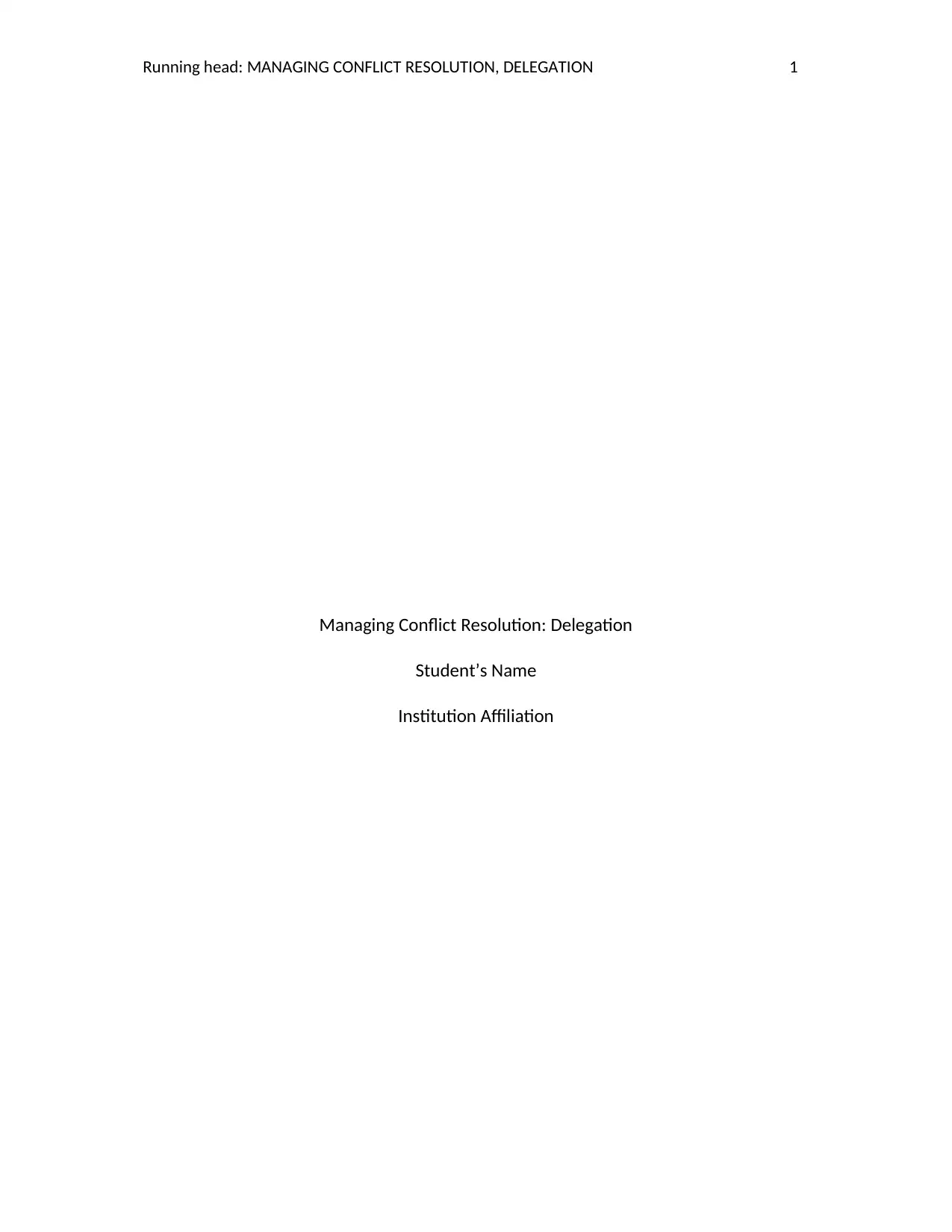
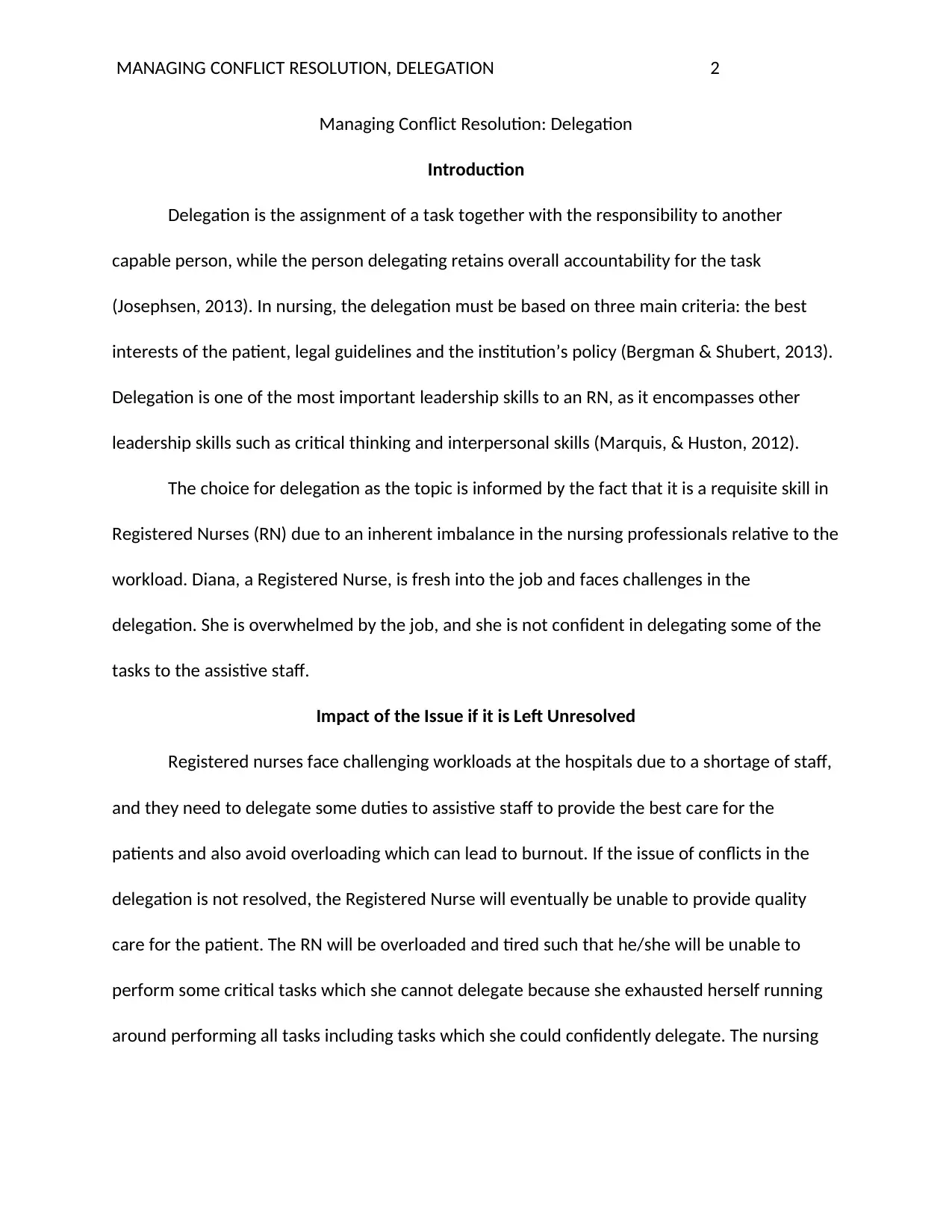
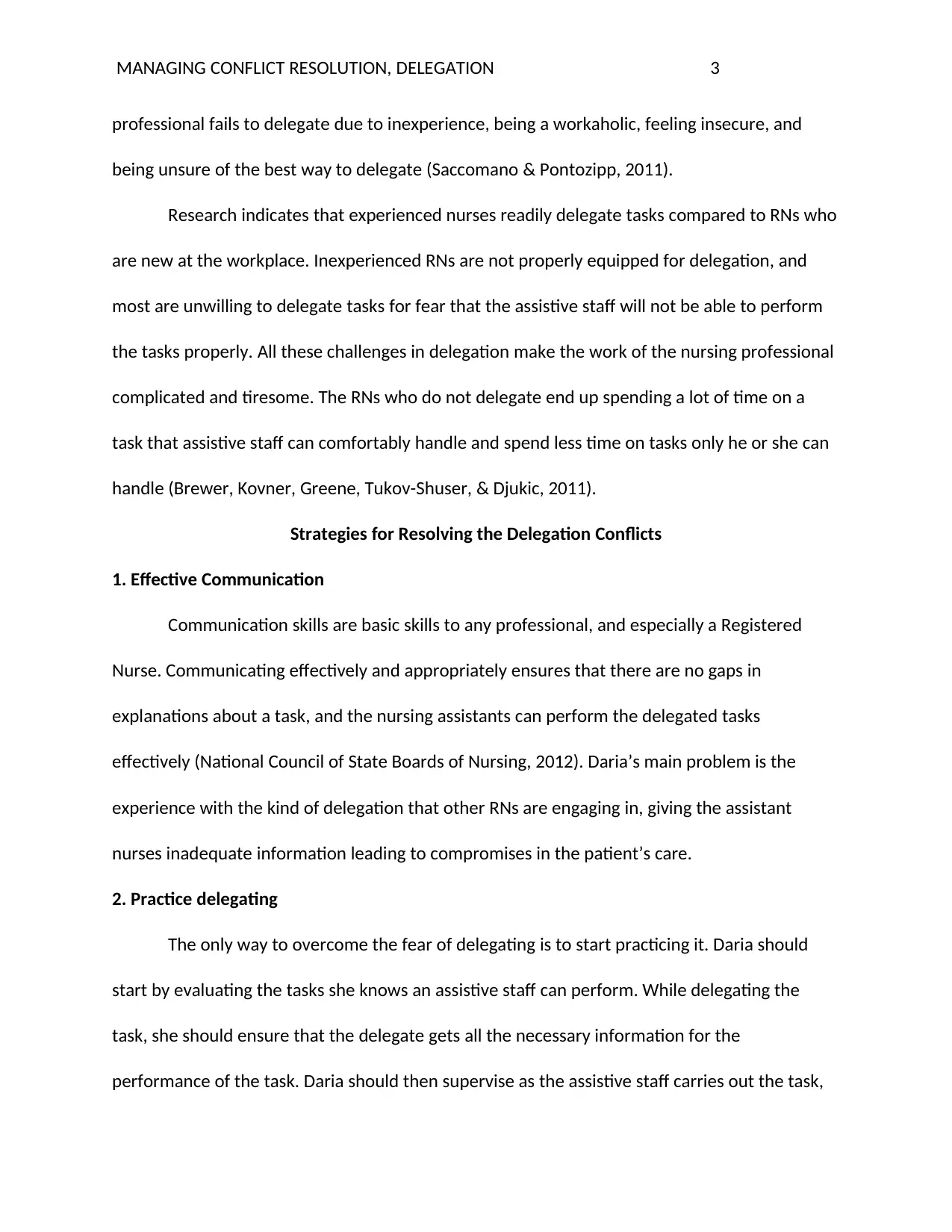

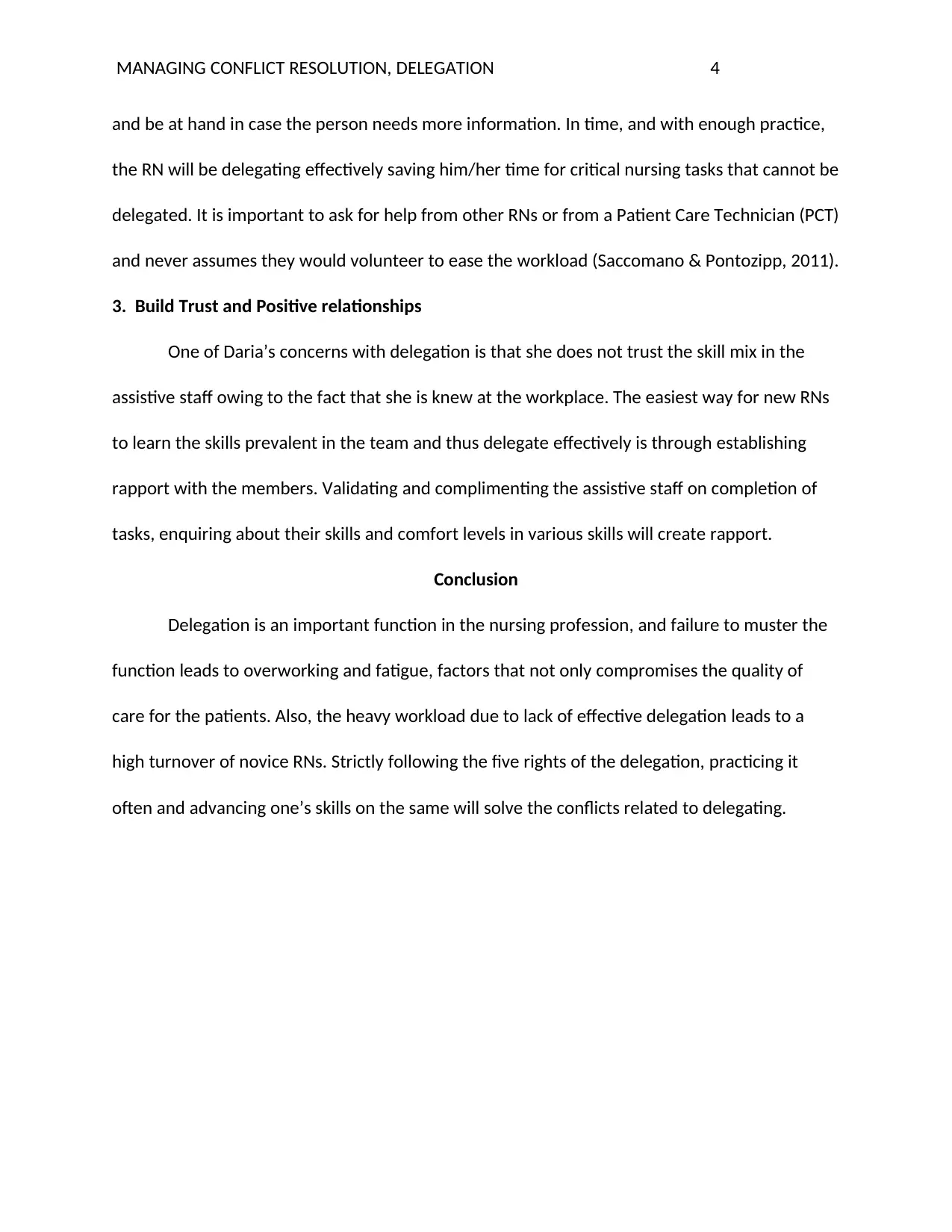
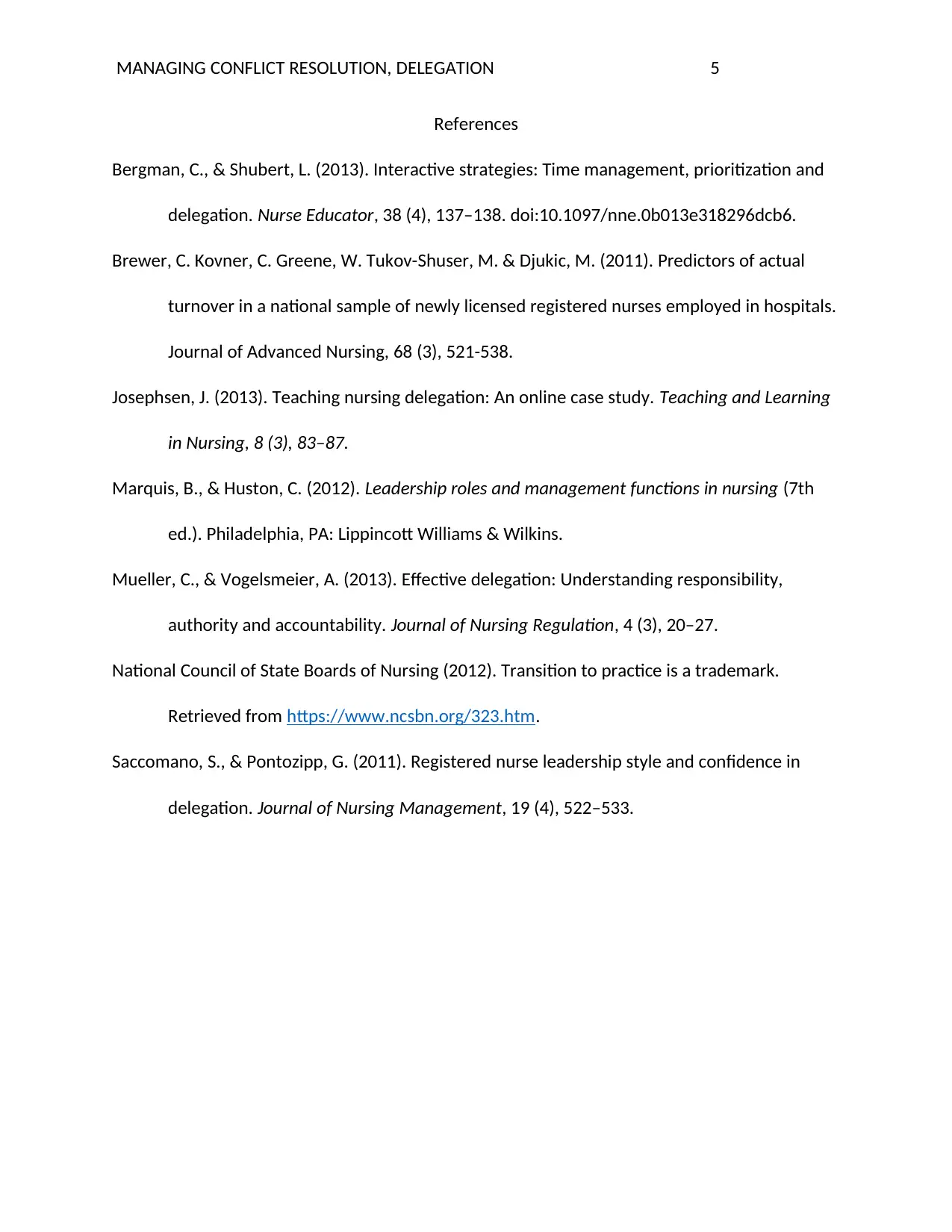






![[object Object]](/_next/static/media/star-bottom.7253800d.svg)